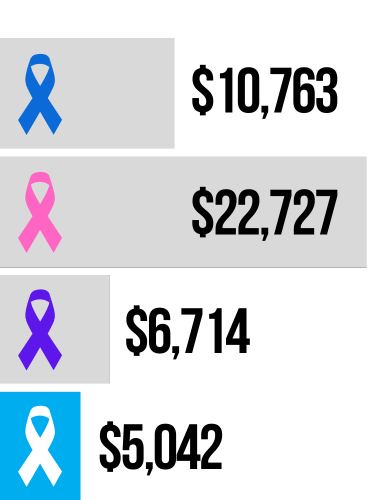Facts about lung cancer
LUNG CANCER is the leading cause of cancer death worldwide.1
AN ESTIMATED 226,650 PEOPLE will be diagnosed with lung cancer in 2025 in the U.S.2
1 IN 16 PEOPLE will be diagnosed with lung cancer in their lifetime – 1 in 16 men, and 1 in 17 women.2


Approximately 124,730 AMERICAN LIVES are lost annually.2
654,620 PEOPLE IN THE U.S. TODAY have been diagnosed with lung cancer at some point in their lives.2
THERE IS HOPE. The number of new lung cancer diagnoses is in steady decline. From 2012-21, the incidence rate decreased by 3% per year in men and 1.4% per year in women. Mortality rates are declining even faster, which likely reflects advances in treatment and early detection.2
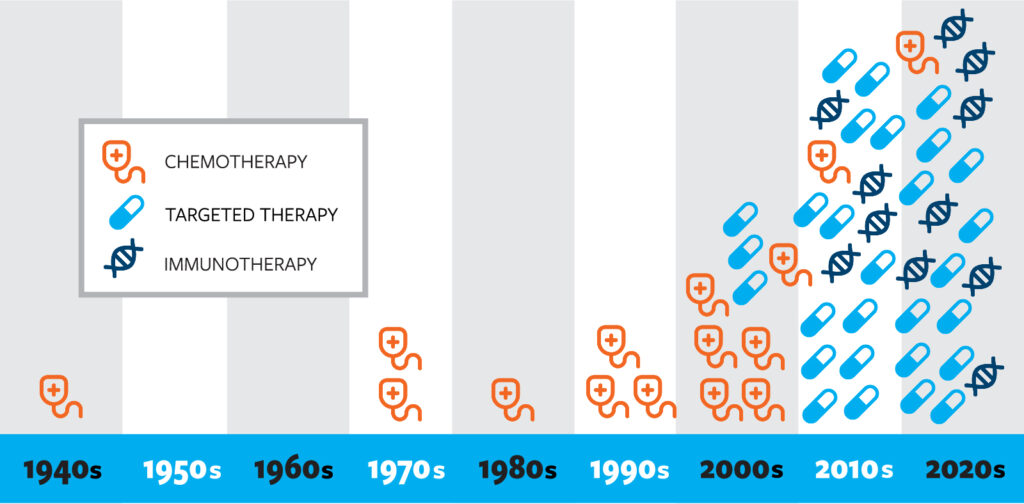
Risk factors for lung cancer
Smoking is the leading risk factor for lung cancer and is responsible for 80% of lung cancer deaths. People who have never smoked account for 20% of lung cancer deaths.
Exposure to radon gas is the second leading risk factor of lung cancer.2
Other risk factors include exposure to:2
- secondhand smoke
- asbestos
- certain metals (arsenic, chromium, cadmium)
- certain organic materials
- radiation
- air pollution
- diesel exhaust
Family history and genetic factors may also play a role in the development of lung cancer.2
People who have never smoked account for as many as 20% of lung cancer diagnoses every year. That means as many as 46,000 people who have never smoked could be diagnosed with lung cancer this year in the U.S.3

Symptoms of lung cancer
See your doctor if you experience any of the following common symptoms of lung cancer:
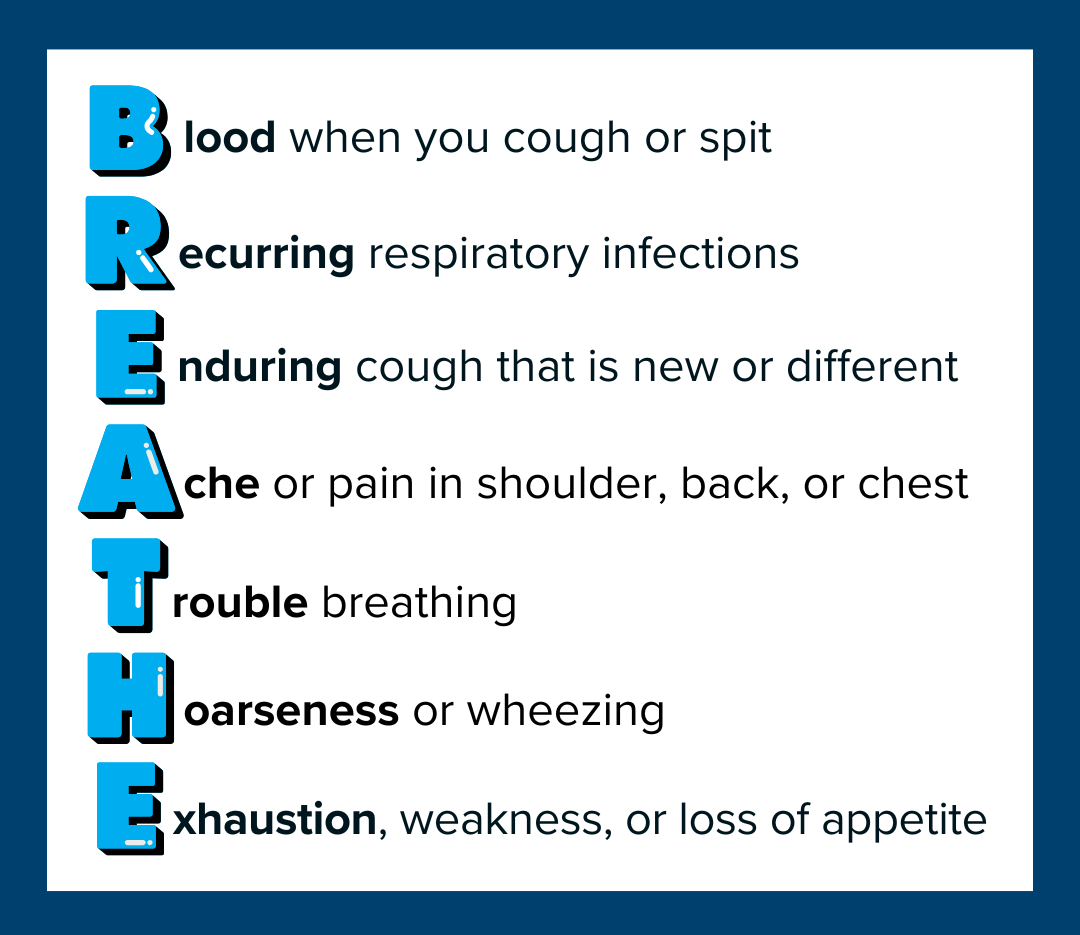
Other symptoms may include:
- swelling in the neck and face
- difficulty swallowing
- weight loss

What you can do
Lung cancer screening
Early detection of high-risk lung cancer cases can reduce chance of death by up to 20%. If you smoke now or have in the past, ask your doctor if lung cancer screening may be right for you. Approximately 8 million Americans are at high risk for lung cancer and could benefit from a lung cancer screening …and yet only 16% actually get screened.4
Reduce your risk of lung cancer

If you smoke, get the help you need to quit. You can get help from state quit lines and other programs. Visit becomeanex.org or smokefree.gov, or call (800) 784-8669 [(800) QUIT-NOW].
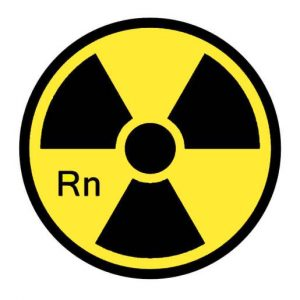
Reduce exposure to radon. If you live in an area with high levels of radon, consider having your house tested for radon exposure and, if needed, take steps to reduce radon levels. More information is available at epa.gov/radon.
Get involved
Share patient resources. Help people living with lung cancer confidently make decisions about their care by distributing our free patient resources at local hospitals and clinics: LCRF.org/resources

Join an event. LCRF brings the lung cancer community together through #TogetherSeparately livestreams, Free to Breathe Walks and other events nationwide: LCRF.org/events.

Start your own fundraiser. Design your own unique fundraiser through our Free to Breathe Your Way program: LCRF.org/yourway
You can also honor a loved one with a memorial: LCRF.org/memorial

Help close the funding gap
Lung cancer claims about as many lives each year than breast, pancreatic, and prostate cancer combined.
Below: Estimated annual cancer deaths, 2025
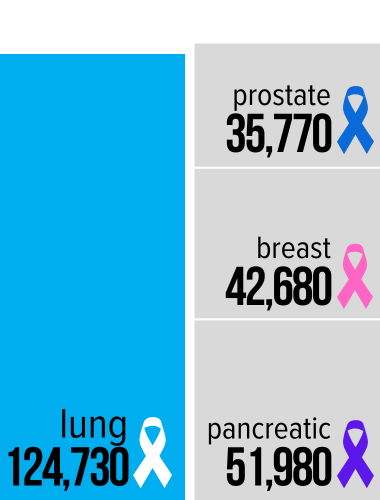
Research means better treatment options and increased chances of survival. Donate to support lung cancer research.
Sources
- International Agency for Research on Cancer. GLOBOCAN Lung Cancer Facts Sheet.
- American Cancer Society. Cancer Facts and Figures 2025. Atlanta; American Cancer Society: 2025.
- Centers for Disease Control and Prevention. Lung cancer among people who never smoked, July 2023.
- American Lung Association. State of Lung Cancer 2024.
- National Institute of Health. Estimates of Funding for Various Research, Condition, and Disease Categories (RCDC), 2025.
